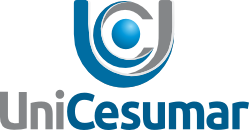INTERCULTURALIZING METHODOLOGIES FOR THE TEACHING OF ENVIRONMENTAL EDUCATION IN INDIGENE SCHOOLING
Abstract
Years working in Indigene schools have made us perceive modification in natural scenery such as an increase in consumption and rubbish accumulating at the backyards of households, in streams where formerly clean water used to flow, nowadays they are dry, lack of riparian forest and water. These facts and perceptions have made us analyze why these landscapes have changed and they may be a help in activities on environmental education. Research took place in an Indigene municipal school in the district of Taunay, municipality of Aquidauana MS Brazil. Analysis aimed at working out subsidies with different methodologies in the teaching of environmental education with ten Indigene teachers of the first years of Fundamental Education and discussed social and environmental issues for a critical stance in the students with regard to the environmental impact in the environment. The teaching strategies by Indigene teachers were studied with regard to the first years of Primary Education, in their lessons and the registration of regularity by which these issues were analyzed. Indigene teachers were interviewed to discuss the themes for interdisciplinary capacity in environmental education based on problematizing education, following Paulo Freire, with an emphasis on the respect that the educator must have for students´ knowledge brought to the classroom. In the case of environmental education, the text is foregrounded on the ideas of Isabel Cristina de Moura Carvalho, Edgar Morin and others, giving priority to the problematization of knowledge from immediate facts, questioning them in their relationship with nature.References
BACHELARD, G. A formação do espírito científico: contribuição para uma psicanálise do conhecimento. Rio de Janeiro: Contraponto, 1996.
CARVALHO, Isabel C. de M. Educação ambiental: a formação do sujeito ecológico. 3. ed. São Paulo: Cortez, 2008.
FREIRE, P. Conscientização: teoria e prática da libertação: uma introdução ao pensamento de Paulo Freire. Tradução de Kátia de Mello e Silva. Revisão técnica de Benedito Eliseu Leite Cintra. São Paulo: Cortez & Moraes, 1979.
FREIRE, P. Professora sim, tia não: cartas a quem ousa ensinar. São Paulo: Olho d’água, 1987.
FREIRE, P. Extensão ou Comunicação? Trad. Rosisca D. de Oliveira. 10. ed. Rio de Janeiro, RJ: Paz e Terra, 1983.
FREIRE, P. Pedagogia da autonomia: saberes necessários à prática educativa. São Paulo: Paz e Terra, 1996.
GIRÃO, Simone A, CALARGE, Carla F. C, SOUZA, Neimar M. Cultura e História dos Povos Indígenas. Campo Grande: Universidade Federal do Mato Grosso do Sul, UFMS, 2010.
LIBÂNEO, José C. Didática. 21 reimpr. São Paulo: Cortez, 1994.
LUDKE, M.; ANDRÉ, E. D. A. Pesquisa em educação: abordagens qualitativas. São Paulo: EPU, 1986.
MARCONI, Marina de A.; LAKATOS, Eva M. Fundamentos de metodologia científica. São Paulo: Atlas, 1985.
MORIN, Edgar. Os sete saberes necessários à educação do futuro. Tradução de Catarina Eleonora F. da Silva e Jeanne Sawaya. Revisão técnica de Edgard de Assis Carvalho. 2. ed. São Paulo: Cortez; Brasília, DF: UNESCO, 2000.
MUSSI, Vanderleia, P. L.; URQUIZA, Antônio H. A.; VARGAS, Vera L. F. Cultura e História dos Povos Indígenas. Universidade Federal do Mato Grosso do Sul – Coordenadoria de Educação Aberta e a Distância. Módulo 3, reconhecendo preconceitos sobre os povos indígenas. Campo Grande – MS, UFMS, 2010.
SILVA, Aracy L. da (Org.). A questão indígena na sala de aula subsídios para professores de 1° e 2° graus. São Paulo: Brasiliense, 1987.
VIEIRA, Carlos M. N. A Sociedade Indígena no Brasil. In: URQUIZA, Antônio H. A. (Org.) Cultura e História dos Povos Indígenas. Universidade Federal do Mato Grosso do Sul – Coordenadoria de Educação Aberta e a Distância. Módulo 2, conhecendo os Povos Indígenas no Brasil Contemporâneo. Campo Grande – MS, UFMS, 2010.
Os direitos autorais pertencem exclusivamente aos autores. Os direitos de licenciamento utilizado pelo periódico é a licença Creative Commons Attribution
 Creative Commons Atribuição 4.0 Internacional. São permitidos o compartilhamento (cópia e distribuição do material em qualquer meio ou formato) e adaptação (remixar, transformar, e criar a partir do trabalho, mesmo para fins comerciais), desde que lhe atribuam o devido crédito pela criação original.
Creative Commons Atribuição 4.0 Internacional. São permitidos o compartilhamento (cópia e distribuição do material em qualquer meio ou formato) e adaptação (remixar, transformar, e criar a partir do trabalho, mesmo para fins comerciais), desde que lhe atribuam o devido crédito pela criação original.

